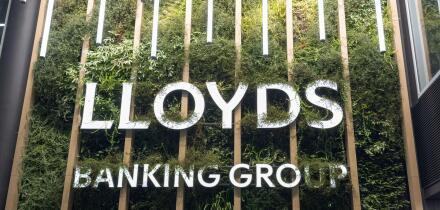Since the onset of the coronavirus pandemic in the western hemisphere, supranational and agency borrowers have rushed into the bond market to provide crucial financing to support their member states.
“SSA issuers have been very quick to react — which is understandable as they are on the frontline, with many of them having increased borrowing programmes as a result of Covid-19 related lending to their member states and clients,” says Pierre Blandin, head of sovereign, supranational and agency debt capital markets at Crédit Agricole in London. “We quickly acknowledged the fact that these proceeds were a powerful marketing instrument and felt that there were very deep pockets on the investor side to support this.”
Acting fast was certainly what the Nordic Investment Bank and Bpifrance had to do. With no pre-existing social or sustainable bond programmes, they established brand-new and tailor-made Covid‑19 response bond frameworks as the virus spread across western Europe.
“Other issuers have used their social bond programmes to issue their Covid-19 bonds, but as we don’t have a social bond programme, we had to react quickly,” says Jens Hellerup, head of funding and investor relations at NIB in Helsinki. “It is important to state that the programme is a response to short-term economic shocks from the coronavirus crisis and we do not necessarily see it as a social bond programme tackling long-term social issues.”
NIB’s response bonds have a broad focus, financing areas such as healthcare services, unemployment benefits, small and medium-sized enterprises and the infrastructure sector across its member states.
NIB has raised two bonds with three year maturities under its response bond framework, taking €1bn and Skr4bn ($420.9m) on March 30 and April 2, respectively. But it is unlikely to raise more. “At the moment, we don’t have any more assets — and if the pandemic is going the way we hope, then we might not get more assets and so we will not be able to issue any more response bonds,” says Hellerup.
NIB has increased its funding needs for the year from €5.5bn-€6.5bn to a record high of €8bn-€9bn.
Eric Louis, head of funding at France’s state-owned public investment bank, Bpifrance, in Paris, says the decision to create a specific Covid-19 response bond framework was to highlight the specific assets it has to fund during the crisis.
“Since the assets to fund are only dedicated loans to mitigate cashflow difficulties because of the Covid‑19 crisis, we wanted to underline Bpifrance’s key role in the financing and implementation of the French state’s massive plan to support French companies and preserve as much employment as possible.”
Like NIB, Louis says Bpifrance’s response bonds are not social bonds as they are not fully aligned with ICMA’s Social Bond Principles.
Bpifrance’s Covid-19 response bonds will primarily be used to finance loans referred to as Prêt Atout for small and medium-sized enterprises and Prêt Rebond for small and micro enterprises.
The French agency raised a €1.25bn seven year with its first Covid-19 response bond on April 24, in which it received its bigger ever order book, at more than €3.4bn.
As a result of its Covid-19 response measures, Bpifrance has increased its 2020 medium and long-term funding target from €4bn to €7bn.
Old is new
Rather than creating an altogether new framework, the European Investment Bank and the Council of Europe Development Bank have instead extended the eligibility criteria of the assets under their existing sustainable awareness bond and social inclusion bond frameworks to additional areas related to the fight against Covid-19, such as healthcare.
Other issuers have simply used their own social and sustainable bond frameworks to fund their response to the crisis. The World Bank has raised the biggest response bond by far: an $8bn five year sustainable development bond on April 15.
“Signing a bond document for $8bn was a once in a lifetime experience,” says Andrea Dore, head of funding at the World Bank in Washington DC. “It would not have been possible without our investor support, which has been built up over many years.
“The response from investors has been remarkable across a number of different currencies. We have raised almost $30bn since the start of the crisis. At the beginning it was a very difficult market to navigate through. I wouldn’t say the market is back to where we were before the crisis, but we are in a much better place.”
The World Bank has been issuing its sustainable development bonds in response to the crisis with a focus on the third of the United Nations Sustainable Development Goals, “good health and well-being”.
The supranational borrower has raised a record-breaking amount of more than $70bn during its current financial year, compared with the $55bn-$60bn it had expected.
“There are a broad range of structures that have been used to fund the response to the crisis, but in reality there are only two main use of proceeds, which is to support employment and medical related expenditures,” says Agnes Gourc, co-head of sustainable finance markets at BNP Paribas in London.
Social bond boom
In addition to specially designed Covid-19 response bonds and sustainable bonds, another big area of focus from public sector borrowers has been on the use of social bonds from seasoned socially responsible issuers such as the International Finance Corporation and the African Development Bank.
But the biggest social bond issued by far has been from a new entrant to the market, Unédic, which raised €4bn on May 15 under its new social bond framework, in what is the biggest ever social bond from any issuer.
As France’s state unemployment agency, Unédic is a natural and pure social player and at the centre of the country’s support plan to tackle the crisis.
Unédic has increased its 2020 funding programme from €4bn to €13bn in response to the crisis. However, those numbers are still fluid, as the strain on French companies rises.
All Unédic’s future issuance as part of its updated funding programme will be labelled social bonds, aligned with ICMA’s Social Bond Principles.
More new entrants to the social bond market are expected over the coming months from the likes of NRW.Bank, the state development bank of North Rhine-Westphalia, and even possibly the European Stability Mechanism, which has said it is “analysing” the issuance of social bonds to fund its pandemic crisis package of credit lines to support euro area member states.
“The crisis has led to issuers bringing deals which meet the definition of what a social bond should be for, such as protecting jobs and supporting basic services,” says Tanguy Claquin, head of sustainable banking at Crédit Agricole CIB in London.
“On the investor side, the social bond market is younger than the green bond market. There are not as many dedicated social bond funds as there are green bond funds. There are also no social bond indices. You need to have a number of social bonds before investment strategies are created and once you have investment strategies, this pushes issuers to do more and launch the market to a new level.”
Gourc at BNP Paribas agrees that the social bond market is ready for growth. “Before the crisis, a lot of investors were saying that they were increasing their social bond holdings but that they could not create dedicated funds until there was a decent volume of supply,” she says. “But now there is a bigger focus on the social bond market than we have ever seen before.”
“These types of instruments are having their day now, and the societal issues we are facing are what they were designed for,” says Simon Bond, director of responsible investment portfolio management at Columbia Threadneedle Investments in London.
“We now need to see this widened out beyond supranationals and agencies,” says Bond, who is calling for all issuers to consider social bonds, including banks, sovereigns and local authorities.
Bond says the reason social bonds have been slower in their development than green bonds is the issue around measuring their impact.
“The environment is much easier to measure,” says Bond. “In the green bond market, we talk about carbon emissions. The social equivalent of that is more difficult to measure. But one consistent thing to look at with social bonds is the measurement of people. This might mean patients, students, tenants or customers.”
Another incentive for issuers to consider social bonds is the premium they offer over conventional bonds.
“We have seen social bonds, in particular those related to Covid-19, that have been met with unprecedented demand,” says Blandin. “When you have an order book which is so massively oversubscribed, that gives issuers pricing power.”
“But because we have gone through a period of such spread tightening over the past few weeks, due to the ECB being active in the secondary market, it is impossible to put a number on how may basis points an issuer can save. But I am absolutely convinced that there is a pricing advantage.”
“Investors want to be involved,” says Benjamin De Forton, an SSA DCM banker at BNP Paribas in London. “The sizes of the order books are massive, new issue premiums are small and they are performing in the secondary market. The Covid-19 crisis is touching everyone.”






